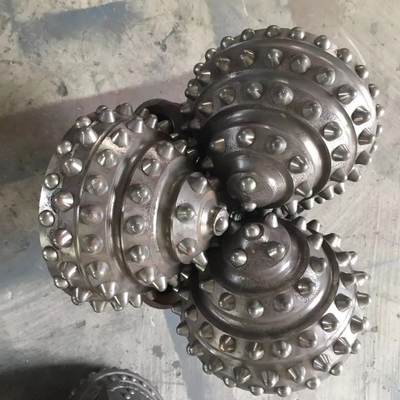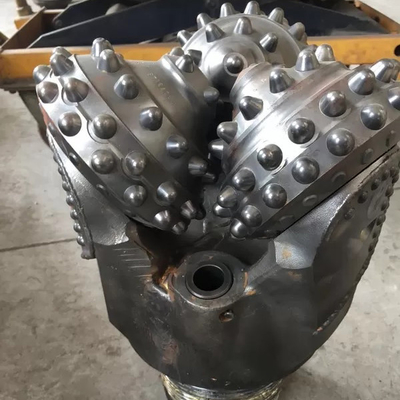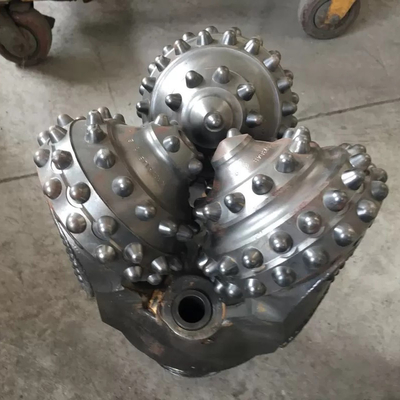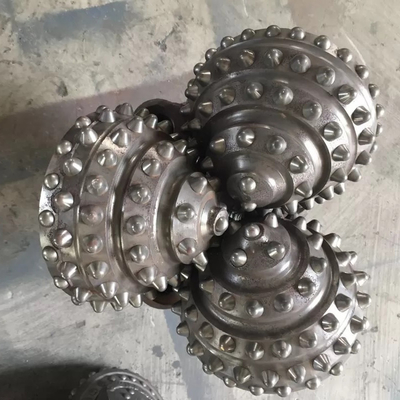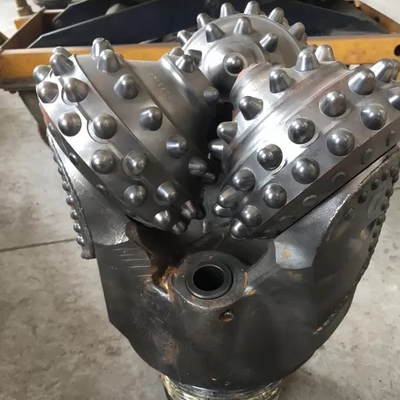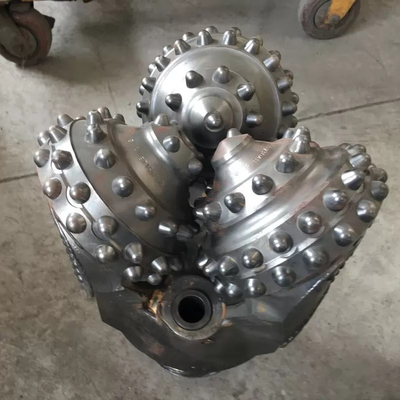-
 RitaThe tricone bit quality is good
RitaThe tricone bit quality is good -
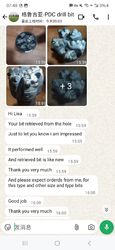 Guramyour bit retrived from the hole ,just let you i am pressed , it performed well .And retrieved bit is like new .
Guramyour bit retrived from the hole ,just let you i am pressed , it performed well .And retrieved bit is like new .
Rock Bit 9-7/8 Inch IADC 735 Of Water Mining Drilling Tool
| Type | Drill Bit | Material | Tungsten Carbide |
|---|---|---|---|
| Machine Type | Drilling Tool | Processing Type | Forging |
| Standard | API | ||
| Highlight | 9-7/8 Inch Rock Bit,IADC 735 Rock Bit,Water Mining Rock Bit |
||
Water Mining Drilling Tool
Description
A tricone bit is an essential component of the bottom hole assembly used in drilling operations. This mechanical Tricone drill bit utilizes rotational motion and the mechanical friction generated by its teeth to remove the rock surface during drilling. Its purpose is to harness the energy from the rotating drill string and the mud supply, effectively applying this force to facilitate well deepening.
How to know a tricone bit quality ?
- Tircone Bit IADC code passport
- Tircone Bit TCI & Steel tooth options
- Tircone Bit Additional tungsten carbide inserts on heel rows
- Tircone Bit Tungsten carbide coating on cone bodies
- Tircone Bit Diamond coated tungsten carbide inserts on the gauge of the cones
- Tircone Bit Tungsten carbide inserts on the shirttail of the legs
- Tircone Bit Additional central nozzle for cleaning cones
The tricone bit feature is that they come with their own passport as below :
- The specification of the cones
- The quality stamp signed by the person who made and checked the bit
- The recommended drilling parameters to get the best performance out of the bit:
- Bit weight
- Rotation speed
- Flushing volume
Applications
- Geotechnical investigation
- Mining exploration & Probing
- Geotechnical instrumentation
- Geophysics
Bearing Types
There are primarily three types of bearing designs used in tricone drilling bits:
• STANDARD OPEN BEARING ROLLER BIT:
On these bits the cones will spin freely. This type of bit has a front row of ball bearings and a back row of roller bearings.
• SEALED BEARING ROLLERS BITS
These bits have an O-Ring seal with a grease reservoir for bearing cooling. The seals acts as a barrier against mud and cuttings to protect the bearings
• JOURNAL BEARING ROLLER BITS
These bits are strictly oil/grease cooled with nose bearings, O-Ring seal and a race for maximum performance.
IADC Codes of Tricone Bit
IADC Codes make it easier to describe what kind of rock bit is required.
The first three digits classify the bit according to the formation it is designed to drill and the bearing/seal design used.
1, 2, and 3 designate STEEL TOOTH BITS with 1 for soft, 2 for medium and 3 for hard formations.
Codes 4, 5, 6, 7 and 8 designate TUNGSTEN CARBIDE INSERT BITS for varying formation hardness with 4 being the softest and 8 the hardest
Formation Types
The following shows the typical formation and its IADC reference
1 & 4 Soft formations with sticky layers and low compressive strength, such as clay, marls.
1 & 4 Soft formations with low compressive strength such as marl, salt, anhydrite and shale.
5 Soft to medium formations with low compressive strength and inter-bedded with hard layers, such as sands, shale and chalk.
2 or 6 Medium to hard dense formations with high to very high compressive strength, but with non-abrasive or small abrasive layers, such as shales, mudstone, sandstone, limestone, dolomite and anhydrite.
3 or 7 Hard and dense formations with very high compressive strength and some abrasive layers, such as siltstone, sandstone and mudstone.
8 Extremely hard and abrasive formations such as quartzite and volcanic rock.



